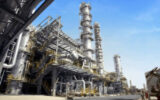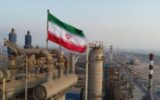
The planning director of the National Petrochemical Company, emphasizing the focus on the downstream and reaching a capacity of 131 million tons by the end of the Seventh Plan, said that producing gasoline from methanol is not economically viable.

Despite the special capabilities in developing the propylene value chain, due to excessive licensing and lack of sound policymaking by the National Petrochemical Company, this market is becoming saturated and is on track to suffer a similar fate to methanol production units.

Bandar Abbas Oil Refining Company, as one of the 10 largest refineries in the country, plays a key role in providing Iran with the energy and products it needs. The refinery was built on an area of about 770 hectares, 20 kilometers west of Bandar Abbas city and on the northern shore of the Persian Gulf, and went into operation in 1997 with an initial capacity of 232,000 barrels per day.

The CEO of Jamco said: "The electricity economy in Iran is paralyzed; power plants are not even making ends meet for their repairs, let alone building new ones." He warned that incorrect electricity pricing has caused investors to flee the sector and that the electricity imbalance is deepening every year.

This change is not an apparent shift, but rather a reflection of our more professional approach to honesty, speed, and accuracy in reporting.

The Secretary General of the Iranian Petrochemical Industry Employers' Association emphasized the necessity of completing the value chain in the petrochemical industry at the opening ceremony of the 19th Iran Plast Exhibition.

In an interview with this media outlet, the CEO of Shazand Petrochemical Company described the company's most important recent challenge as the cessation of gasoline exports to Afghanistan, saying that as the country's standards became stricter, the export of 80-octane gasoline, which previously constituted an important part of Shazand's income, has been halted.

At the opening ceremony of the 19th Iran Plast, the CEO of the National Petrochemical Industries Company pointed out the status and importance of the petrochemical and polymer industries and said: Petrochemical products, especially polymers, play a key role in various industries and have a pervasive presence in our daily lives.

Regarding the fate of upstream memorandums of understanding and their conversion into contracts, the CEO of the National Petrochemical Company said: "Some of these memorandums are being converted into contracts. For example, the contract for the Bakhtar complex has been approved by the National Oil Company's board of directors and is being finalized."

Following repeated claims by Saudi Arabia and Kuwait regarding ownership of the Arash gas field, an international expert emphasized that the historical and legal background of the field is beyond doubt and that the best solution to end the disputes is to refer to impartial international experts and arbitrators.










